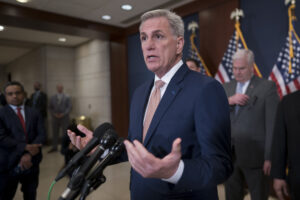Health Website’s Cosmetic Makeover
WebMD, the popular medical and health advice site, was “nailed for servicing Big Pharma” after a 2010 online questionnaire was shown to diagnose depression and suggest “a river of pills” no matter how the quiz was answered. The site has since tried to give itself an "ethical makeover," but the industry ties remain.
WebMD, the popular medical and health advice site, was “nailed for servicing Big Pharma” after a 2010 online questionnaire was shown to diagnose depression and suggest “a river of pills” no matter how the quiz was answered. The site has since tried to give itself an “ethical makeover,” but the industry ties remain.
The website generates revenue “primarily through the sale of advertising and sponsorship programs to pharmaceutical, biotechnology, medical device companies, and [health, diet and fitness-related] consumer products, [as well as] licensing content to insurance companies and health plans,” CEO Wayne Gattinella admitted during an investigation of the questionnaire.
Ninety-five percent of American adults looking to diagnose themselves consult WebMD each year, and 72 percent of physicians recommend the site to their patients, says health reporter Terry Allen.
— Posted by Alexander Reed Kelly.
Your support matters…Terry Allen at In These Times:
It’s unlikely that WebMD’s new CEO, Cavan Redmond, appointed on May 31, will end the insalubrious industry hookups. Redmond, who has also worked at Wyeth and Sandoz, moved to WebMD from a senior executive position at Pfizer’s marketing arm. That gig, the trade website Medical Marketing and Media noted, will give him “a keen understanding of what [WebMD’s] advertisers want.”
What consumers want is sound, independent information. But they, along with experts and doctors, are bombarded with manipulative advertising and industry-funded drug and device studies that can incorporate shady or even illegal tactics to obscure bad science and conflicts of interest.
Industry-funded, ad-reliant medical websites such as WebMD reflect the same market pressures and biases. Some WebMD ads are annoying but obvious. Others, barely set off by the word “advertisement” in minuscule pale gray type, blend into edited news and features. More insidious is content wholly generated by advertisers, which, despite being labeled “sponsored,” is often set in the same font, colors and style as WebMD’s “independent” information.
Independent journalism is under threat and overshadowed by heavily funded mainstream media.
You can help level the playing field. Become a member.
Your tax-deductible contribution keeps us digging beneath the headlines to give you thought-provoking, investigative reporting and analysis that unearths what's really happening- without compromise.
Give today to support our courageous, independent journalists.






You need to be a supporter to comment.
There are currently no responses to this article.
Be the first to respond.